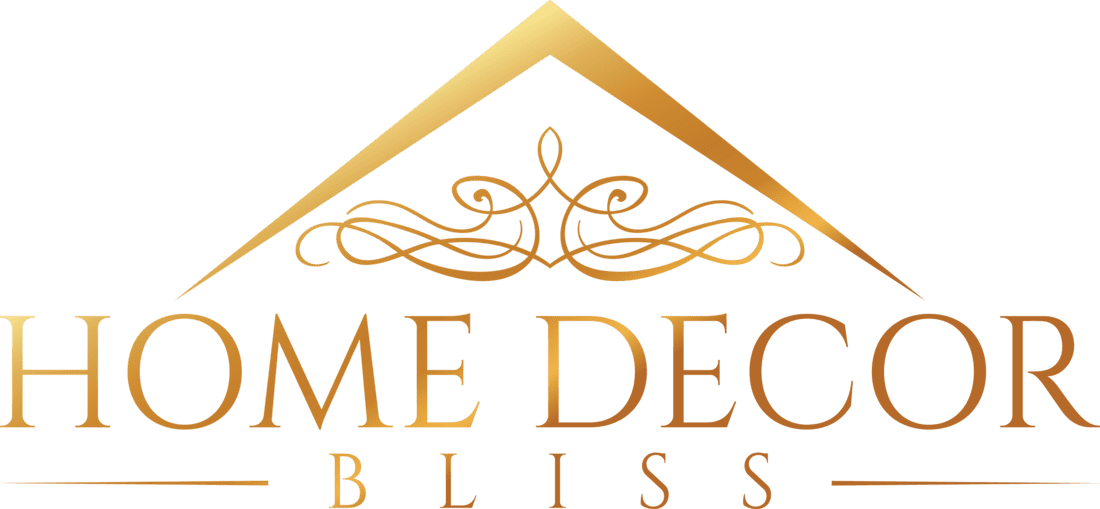When it comes to kitchen renovations, choosing the right material for your countertop is a crucial decision. You've probably heard about two brands that manufacture countertop materials: Avonite and Corian. If you're having a hard time choosing between the two, don't worry! We've researched these brands to help you pick the right one.
Choosing between Avonite and Corian will depend on your preference. Avonite is made from acrylic, while Corian consists of 2/3 natural minerals and 1/3 acrylic resin. Although both materials are durable and homogeneous, Avonite is recyclable, while Corian is made from renewable materials.
There are still a lot of factors to consider when choosing the best material for your kitchen countertop. We will take a closer look at Avonite and Corian to help you decide, so keep reading to learn more.
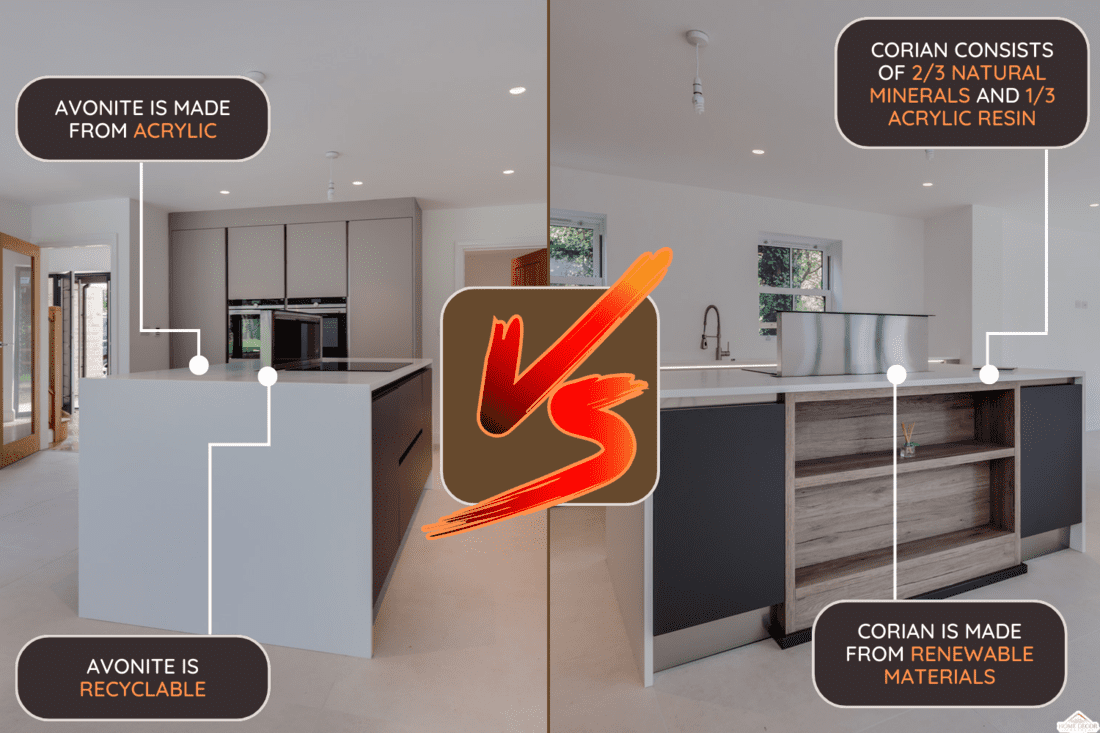
Avonite Vs. Corian: Which Countertop Material To Choose?
Kitchen countertops can be expensive, so if you want to save yourself from frequent countertop renovation, you should be on the lookout for the best material that can stand the test of time.
We sometimes add affiliate links and content that was curated and created by our team with the help of advanced ai tools to help showcase the best design styles.
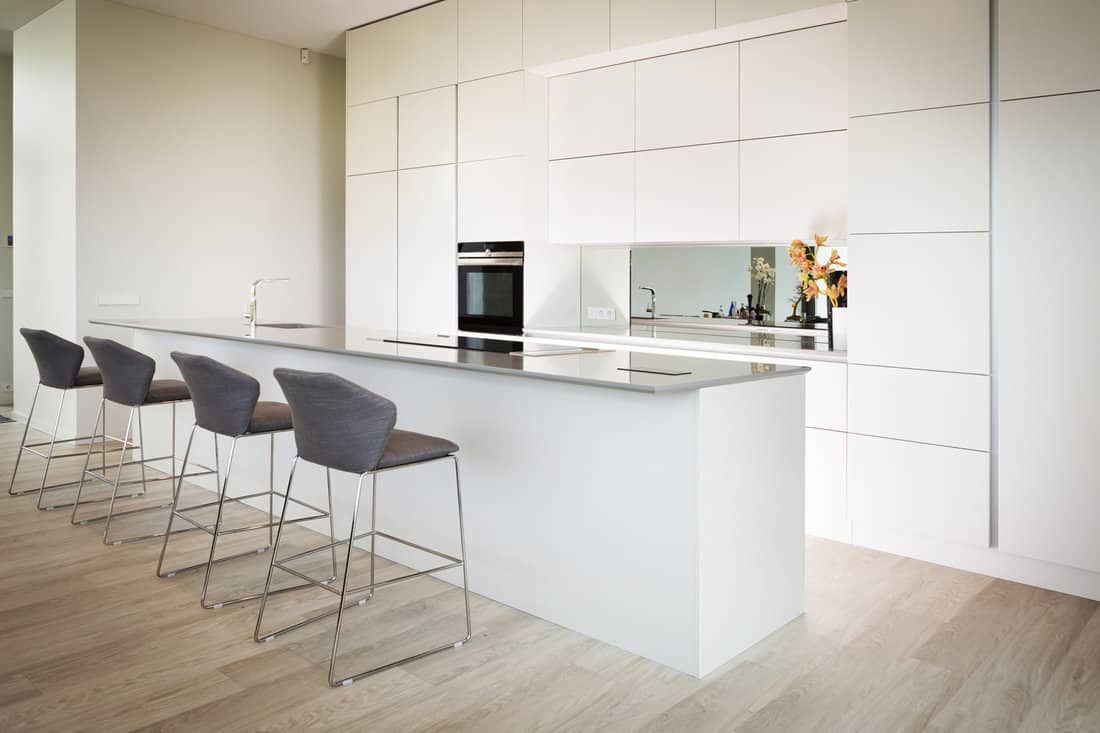
Solid surface materials are considered to be cheaper compared to traditional countertop materials such as granite and ceramic. They are non-porous, have the same materials from top to bottom, and can easily be repaired.
Good thing there are two pioneering brands that produce solid surface materials that could suit your needs: Avonite and Corian.
If you feel torn between Avonite and Corian, it's not surprising. We will go over some of the good-to-know details about each brand, their advantages and their disadvantages, so you can weigh your options and pick the right one.
What Is Avonite?
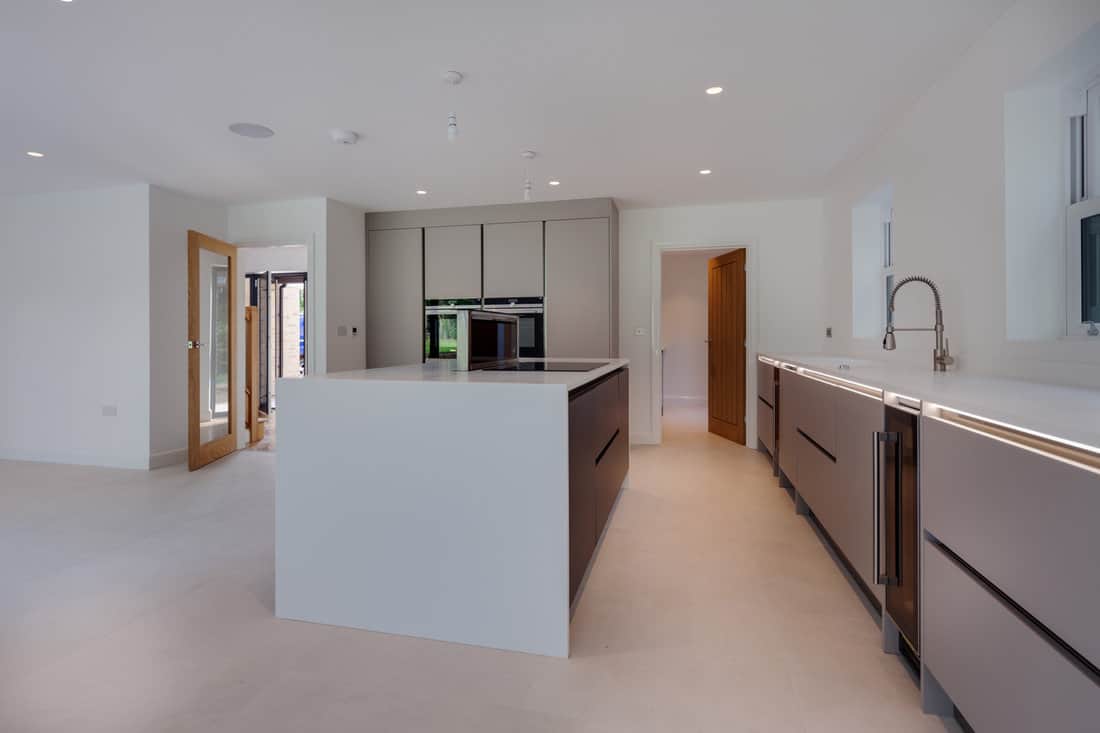
When it comes to solid surface countertops, Avonite is one of the pioneering brands that produces durable yet easy-to-maintain materials.
It comes in different colors and designs that give you freedom to style your kitchen without compromising your budget or the quality of the materials.
But of course, there are still a lot of aspects to consider other than the visual benefits of the material, so let's take a look at some of the advantages and disadvantages of using Avonite.
Advantages of Using Avonite
The first thing you probably look for when choosing the right countertop material is the benefits it can provide. Avonite has a number of advantages, and we've listed them to help you decide.
Environment-Friendly
Avonite is a recyclable countertop material. It is a sustainable and environment friendly option. Some companies use up to 40% recycled materials when making Avonite.
Homogeneous
Since Avonite is created with the same material from top to the bottom, it doesn't have areas that are hard to sand. Its components allow you to make cuts without worrying about uneven parts as you would with granite.
Has A Variety Of Colors
One thing that you will love about Avonite is it comes in different colors, designs, and textures that can match your kitchen's overall theme. Avonite is also known for being a translucent material.
Easy To Maintain
Avonite is designed to be flexible and easy to repair. It does not promote the growth of mold and bacteria.
Avonite is scratch resistant, making it one of the easiest kitchen materials to maintain. It is also heat-resistant, so it can withstand high temperatures in the kitchen.
Disadvantages of Using Avonite
Every material has a downside, and Avonite is no exception. Let's tackle its disadvantages so you can decide if Avonite is truly the right material for you.
Expands When Exposed To Too Much Heat
Despite being heat-resistant, when you directly place a hot pot on top of an Avonite countertop, the part of the countertop that is in contact with the hot pot expands.
Since it is the only portion of the countertop that's experiencing a sudden increase in temperature, the area expands and becomes prone to damage and cracks. Solid surface countertops such as Avonite can only withstand up to 320 degrees Fahrenheit.
Expensive
Although it is different from traditional countertop materials, the cost per square foot of Avonite is nearly similar to more durable and expensive options. Its basic cost ranges from $45.90 to $48.40 and can go up depending on your location.
Can Stain
Although Avonite is relatively durable, it is still made of acrylic, which is prone to stains. When materials with a stain come in direct contact with Avonite countertops, they may leave a blemish that can't be easily removed.
What Is Corian?
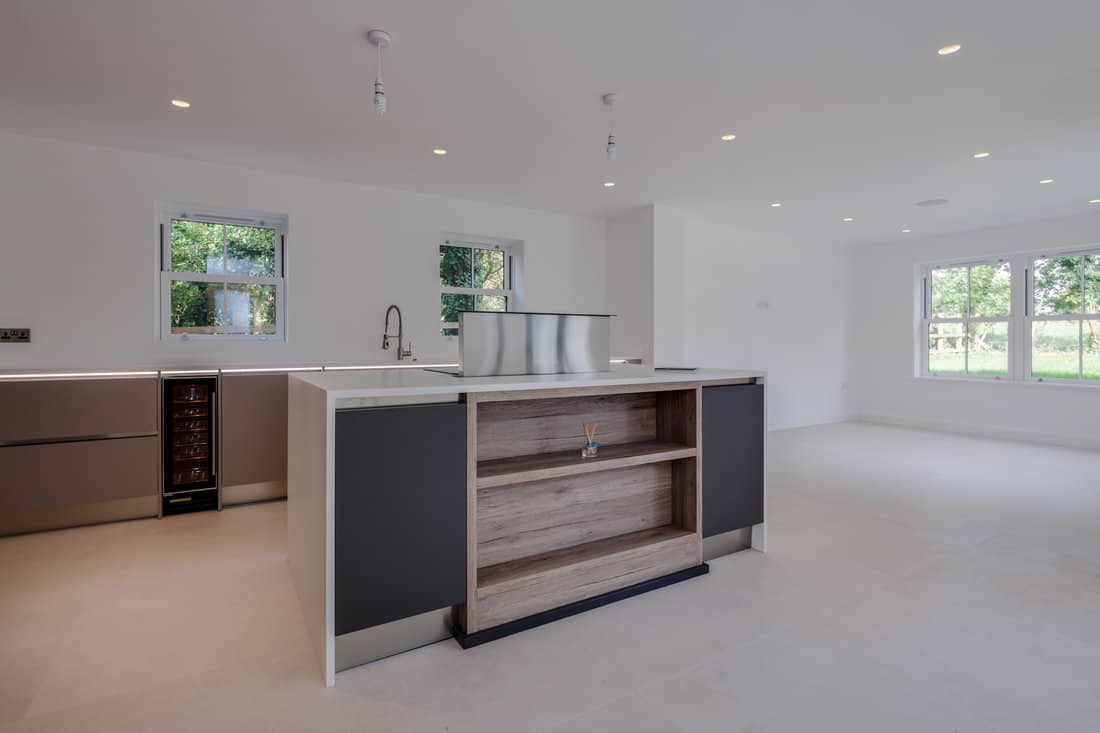
Corian is another brand that falls under the solid surface category. It is one of the very first brands that introduced solid surface countertops to the market.
Initially made by DuPont in 1967, it is a man-made material that is consists of 2/3 natural minerals and 1/3 acrylic resin.
Just like Avonite, it comes in different colors and designs. However, there's more to Corian than meets the eye, and we're are going to discuss the pros and cons of using Corian on your kitchen countertops.
 Advantages Of Using Corian
Advantages Of Using Corian
Every material has benefits, and Corian has plenty to brag about. Let's take a look at the advantage of using Corian.
Does Not Require Sealing
Unlike other countertop materials such as granite, Corian can be installed without the need for sealing.
Seamless And Can Be Sanded
Its seams are also nearly invisible, and it gives you the freedom to sand the edges. It will not chip or flake when sanded, making it easy to work with.
Easy To Maintain
Corian countertops do not generally absorb stains and moisture. With proper care, the countertops will resist the buildup of mold, mildew, and bacteria. They are easy to clean with soap and water and do not require any specific cleaning materials.
See this Corian polish on Amazon.
Disadvantages Of Using Corian
Just like Avonite, Corian has its fair share of disadvantages, too. We've listed some of them here.
Easily Reacts To Chemicals
When comes in contact with strong chemical solutions, Corian may suffer damage. It may become brittle or discolored, causing you to spend some money for repairs.
You should keep any materials or solutions with a high acid content, ink, and even shoe polish from away from your Corian countertop.
Can Be Dented And Scratched
Unlike traditional countertop materials such as granite, Corian is prone to scratches and dents. Although it is considered a solid surface, its surface is still softer than natural stone.
Corian can suffer damage caused by sharp materials such as knives. However, it is easier to repair compared to other countertop materials.
Cannot Withstand High Temperatures
Similar to Avonite, Corian cannot resist high heat. The areas that come in contact with hot materials will burn and expand. Although it is a durable material, Corian is not ideal for high heat.
Check out this Corian countertop repair kit on Amazon.
Can You Use Avonite Or Corian For Your Backsplash?
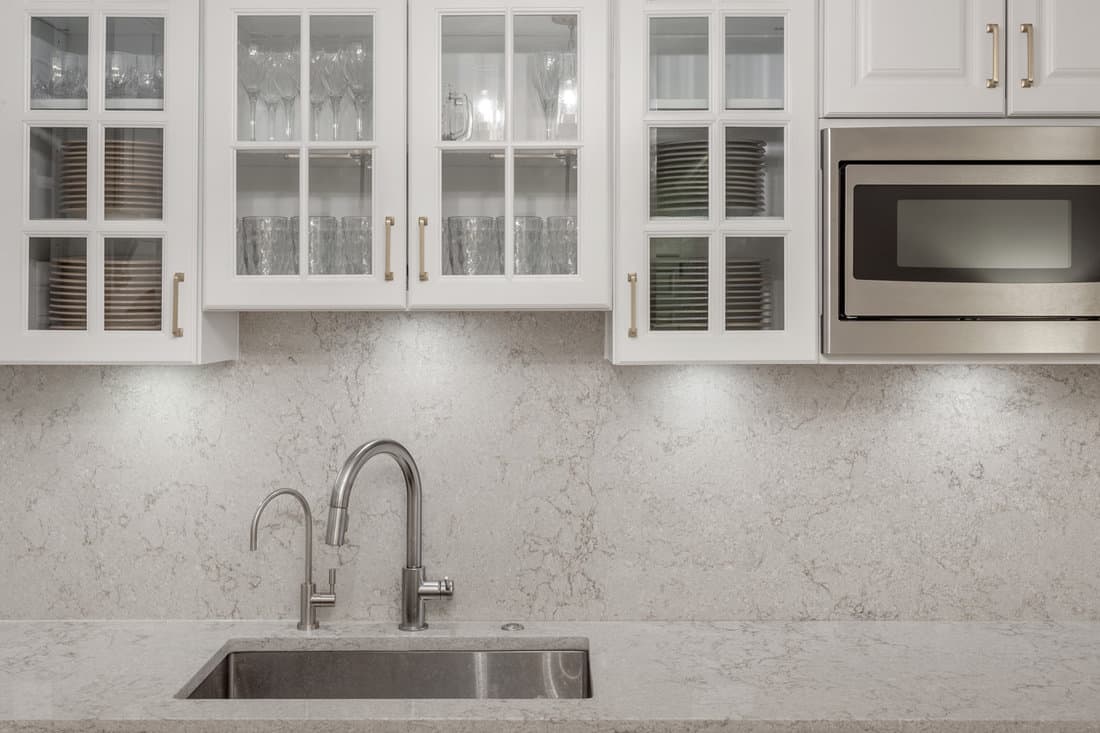
The answer is yes. Avonite and Corian are both solid surface materials that can be molded to fit your specific needs.
If you are planning to use a solid surface material for your backsplash, just keep in mind that it cannot withstand high temperatures as much as granite and ceramic can.
On the other hand, a solid surface material does not need sealing, making it less prone to mold and bacteria buildup unlike other materials on the market that need to be sealed. Also, it is one of the most best materials to use as backsplash since it is easy to clean.
Should you decide to use a solid surface material for your backsplash, you should use the recommended thickness of 1/4 inches.
Final Thoughts
Whether you go for Avonite or Corian, the choice is yours. Just do not forget to take into consideration each brand's advantages and disadvantages so that you can obtain the best kitchen countertop material to suit your taste.
Before you go, check out these related posts too:
Can You Use Floor Tile For Kitchen Countertops Or Backsplash?
How To Fill A Gap Between Countertops And Wall
